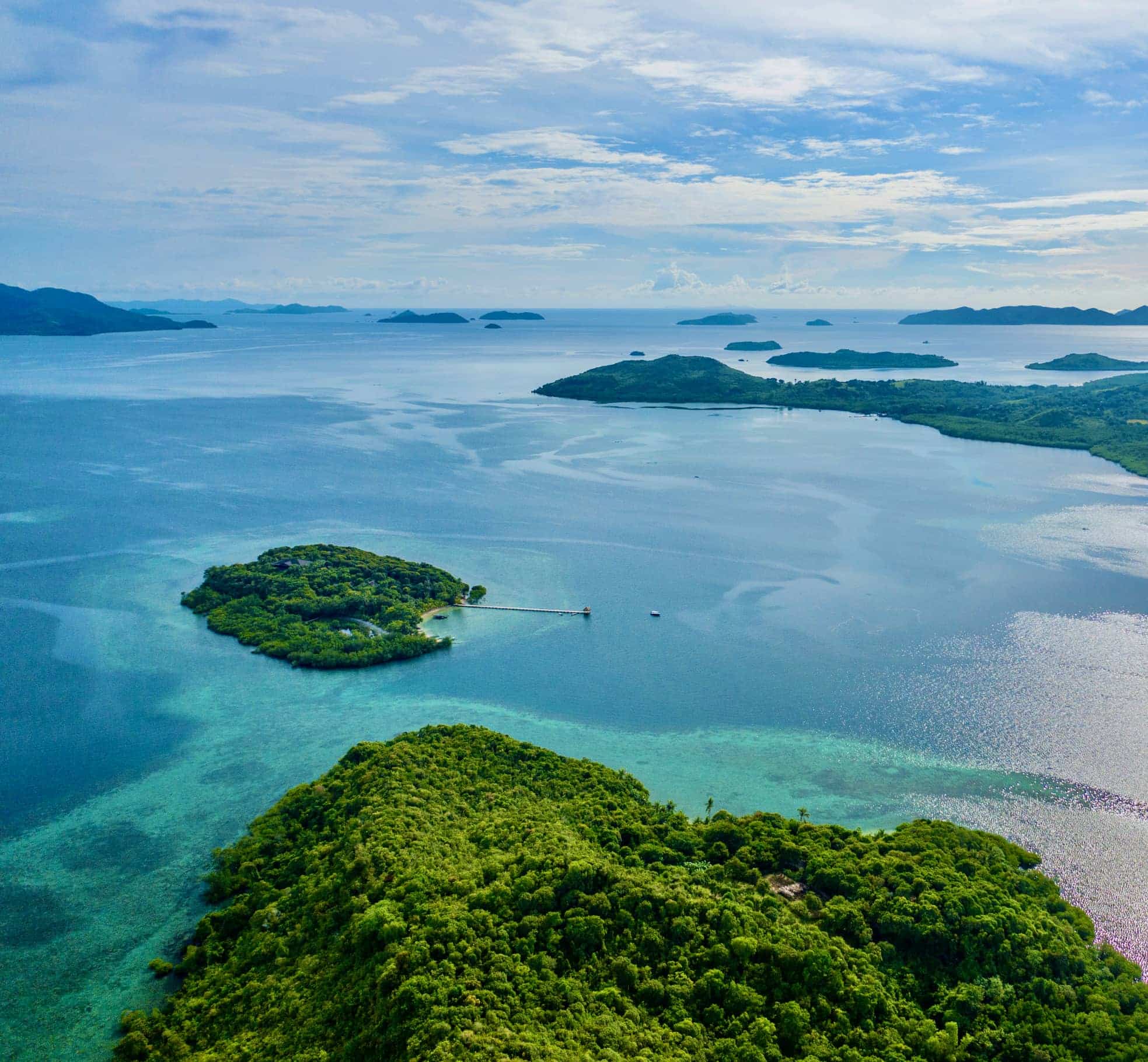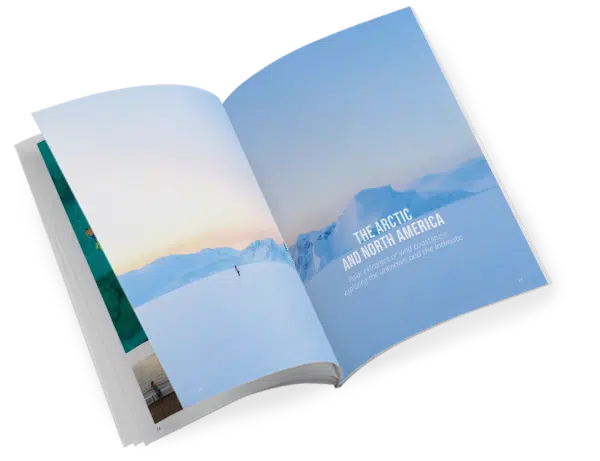A close-up look at an environmental project in the Philippines
At the age of 53, Frédéric Tardieu and his wife moved to live on the tiny abandoned Philippine islet of Pangatalan in the Palawan archipelago, their mission being to restore the coastal and marine ecosystem of this little piece of paradise on earth, which had for several years been suffering devastating damage at the hands of poachers. This major lifetime project led to the creation of both the Sulubaaï Foundation and an environmental programme today recognised around the world, and supported by a number of prestigious partner organisations together with the PONANT Foundation.
The Palawan archipelago, a marine life sanctuary
A designated UNESCO Biosphere Reserve, the Palawan archipelago is one of the jewels of the Philippines. Made up of a main island and over 1,700 islets, it constitutes a coastal ecosystem extending from sea to mountain environments and providing a habitat for a rich range of biodiversity, including tropical rainforests, karst peaks, coral reefs, seagrass beds, turtles, dugongs and whale sharks. Two particularly exceptional areas are designated UNESCO World Heritage Sites: Puerto-Princesa Subterranean River National Park and Tubbataha Reef Marine Park. Though most of the region is protected, some of the archipelago’s islets have not escaped the damage caused by anthropisation. It was on discovering the threats posed to the islands that Frédéric Tardieu and his wife decided to devote themselves to protecting this wonderful natural heritage. “Islands are the sentinels of the oceans,” he explains. They have to be preserved. That’s what drives and energises us.”
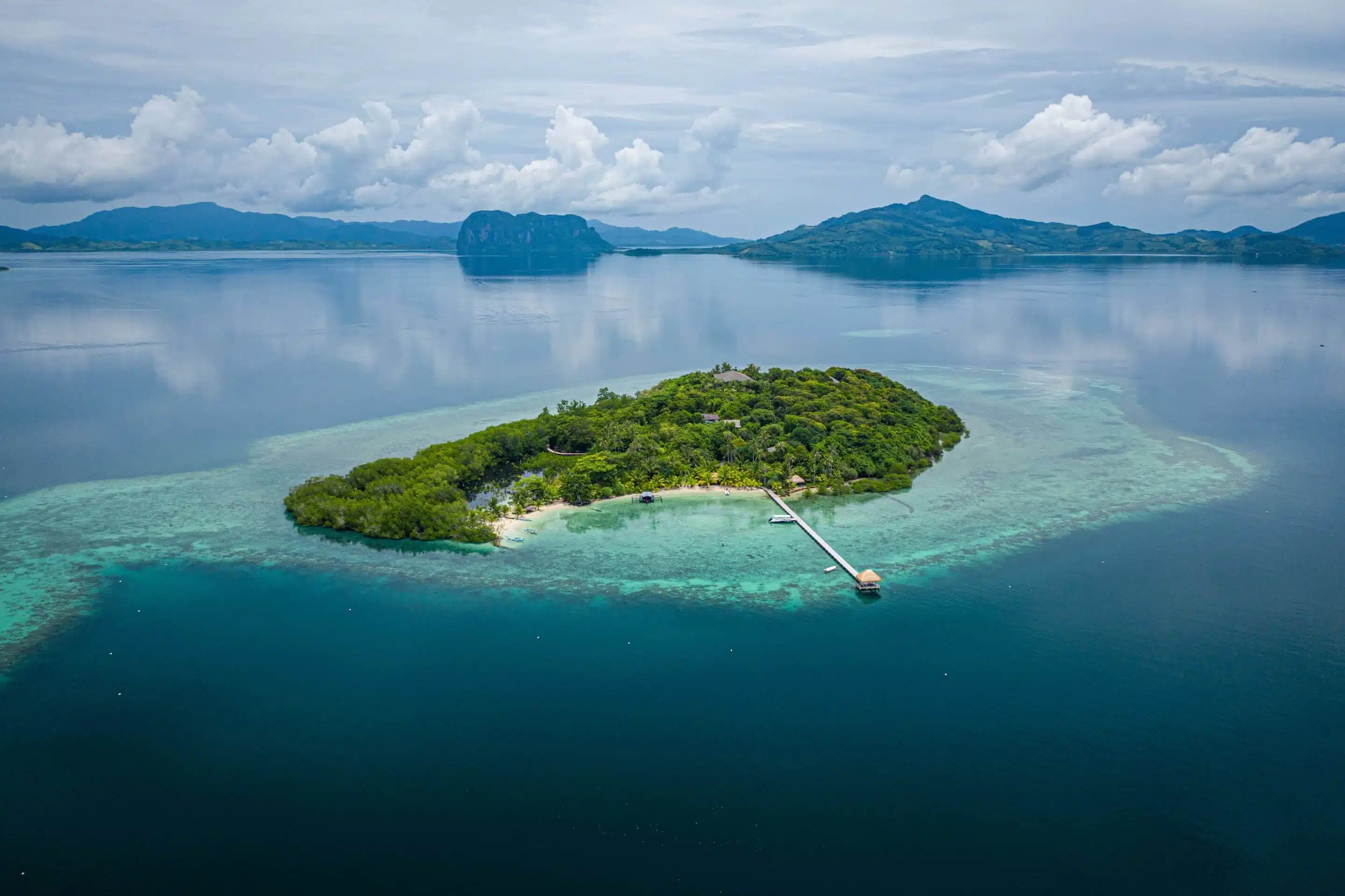
Revegetating Pantagalan
For two years, the couple played at being Robinson Crusoe, sleeping in a tent on the edge of the lagoon, with no running water or electricity. Their first objective was to clean up the island, resand the beach, and connect the island to a drinking water supply by means of an underwater gravity pipeline system designed to collect spring water from another of the islands, supplying a village of 300 homes in the process; and also to bring the vegetation back to life by planting around 50,000 trees and plants, and by growing a huge vegetable garden and restoring the mangrove. In order to house the team and develop a small ecotourism business to help finance their projects, they also set about building their main home and a series of bungalows out of recycled wood, using local resources and local craftspeople trained on site. Bit by bit, nature is gradually returning to the island, and the couple are now working on reintroducing underwater wildlife, as around 50 percent of the corals around the island have been severely damaged due to being either dynamited or burned by the cyanide used by poachers.
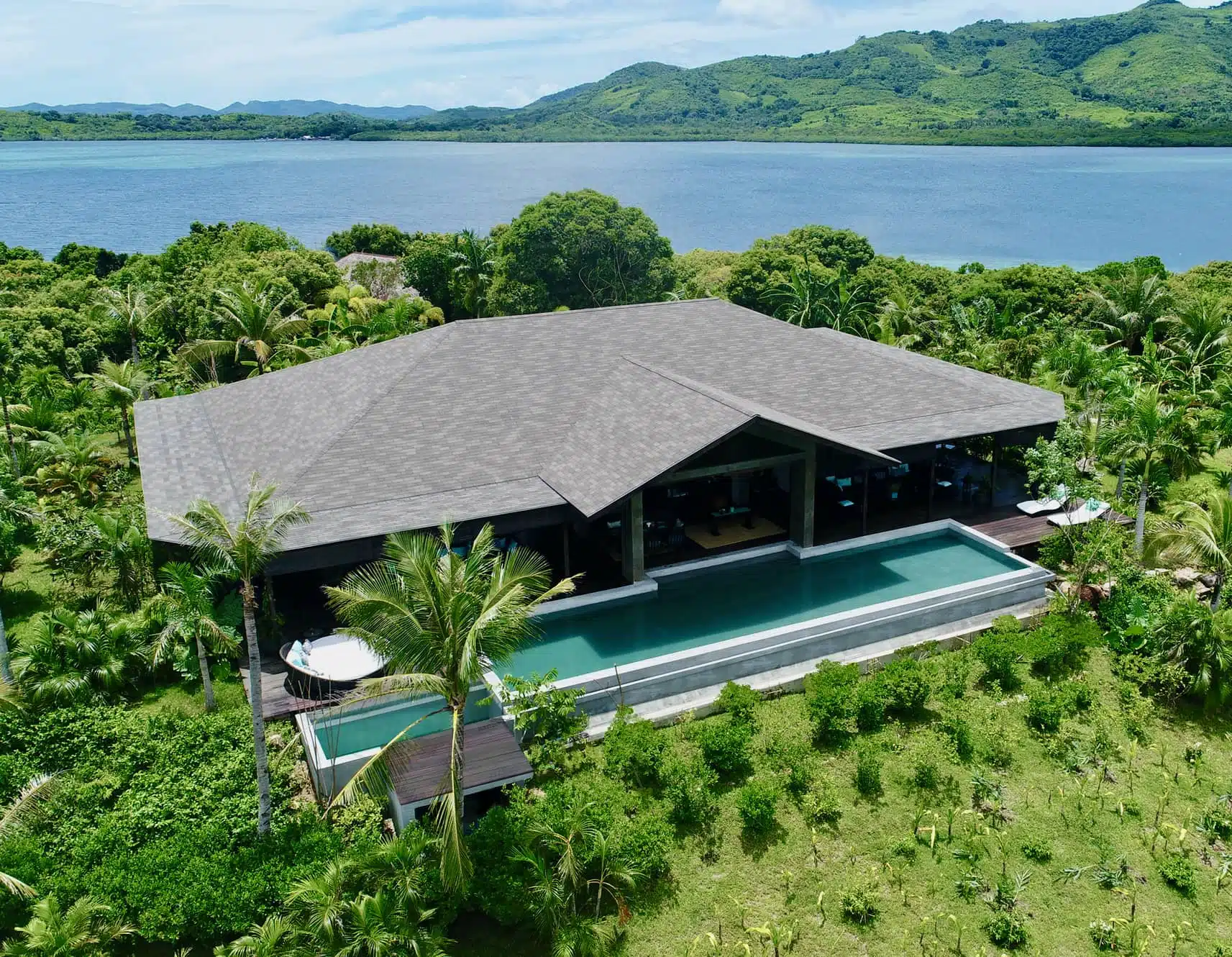
A model for safeguarding natural heritage
Corals first came into existence 900 million years ago and are both the lungs of the oceans and home to 25 percent of all marine biodiversity. Frédéric Tardieu has thought long and hard about how to undo the severe damage caused to the coral reefs around the island and increase the resilience of this vital ecological system. “I wanted to come up with a restoration plan, to innovate. We’ve been working on devising a method of installing structures that are free from polluting components.” he explains. Two complementary approaches have been employed: attaching coral cuttings to existing natural bedrock where conditions allow, and the use of innovative reinforced concrete structures – artificial reefs assembled in small groups that blend into the natural terrain, covering areas destroyed by prohibited fishing techniques. More than 2,500 grafts have successfully grown and developed at depths of between three and twenty meters, and corals have also become established naturally, attracting marine wildlife back to the area again. The outcomes of the experiment have been praised by numerous international organisations, and the island has become a veritable incubator for projects targeted at protecting the oceans.
The Sulubaaï Foundation, a driving force for local development
By combining nature conservation with development and sustainable tourism, the Sulubaai Foundation has rapidly become a key local player in the region. Even fishermen operating illegally have rallied behind the project, as it offers them the chance to find stable employment as guardians and caretakers of these protected marine areas. The foundation’s goal now is to open aquaculture farms in order to reduce the pressure exerted on the bay by fishing. An educational academy has also been set up to pass knowledge of the techniques used for protecting, improving and managing the richness of the coral environment on to future generations. “The idea is to firmly instil our methods and the commitments we’ve made in order to ensure the action we’ve been taking is sustained over the long term, locally or on other islands in tropical regions. Though we are just one amongst many examples, we are nevertheless proud to have brought Pangatalan back to life. I can say to myself that at least we did it, this hummingbird-like work!”
Prestigious accolades and awards
The Pantagalan Island ecological project has been awarded the following labels:
- Sustainable Island, awarded by the Small Islands Organisation (SMILO)
- Zero Carbon Resort”, awarded by the Palawan Council for Sustainable Development (PCSD)
- Biosphere Sustainable Tourism, awarded for sustainability by the Responsible Tourism Institute (RTI) and ETICO
The island has also been designated a Hope Spot by the Mission Blue alliance, an organisation chaired by oceanographer Sylvia Earle.
Photo credits: © Sulubaaï Foundation
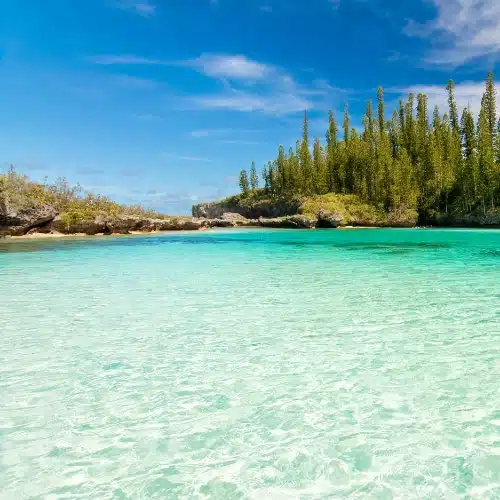
PONANT takes action
Discover the complete range of projects supported by the PONANT Foundation

